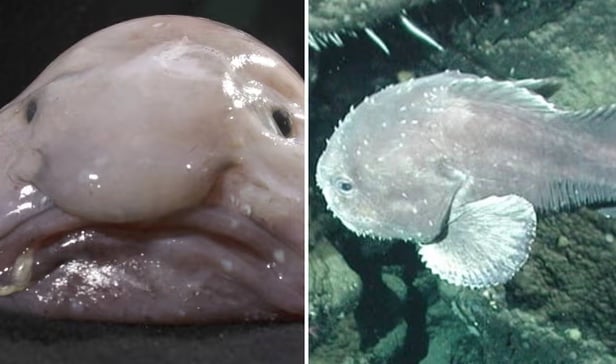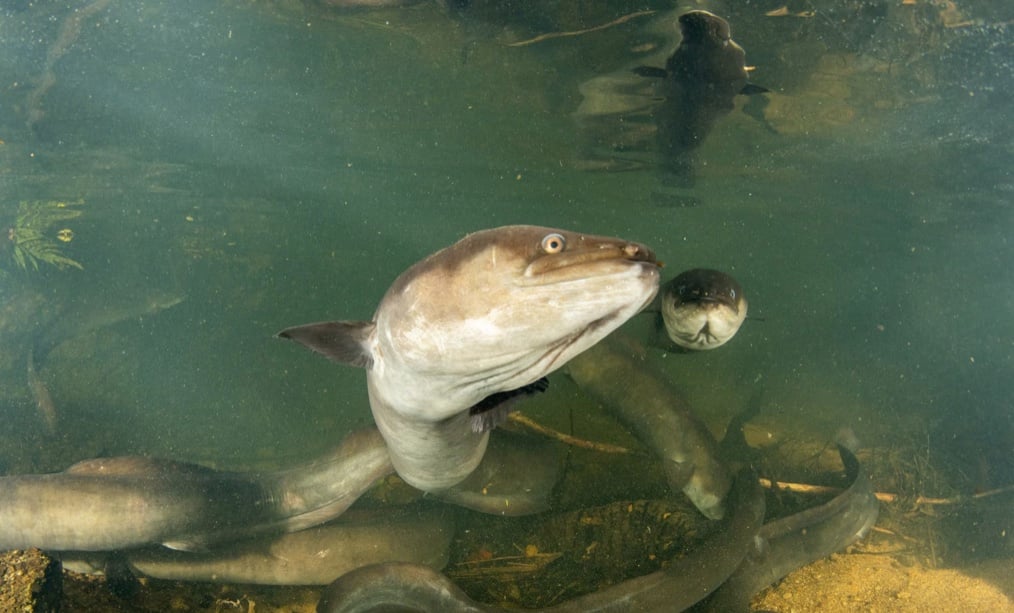The blobfish, once dubbed “the world’s ugliest animal,” has just won a surprising new title: “Fish of the Year” in New Zealand.
According to The Guardian (UK), the blobfish, with the scientific name Psychrolutes marcidus, lives in the deep seas off the coast of New Zealand and Australia, where the water pressure is very high. To adapt to this environment, the blobfish has developed a special body structure. Unlike other fish, they do not have a swim bladder, full bones, muscles or scales. Instead, their bodies are made of soft tissue that is less dense than water, helping them swim on the seabed without much effort.
Mr. Konrad Kurta, representative of the Mountains to Sea Conservation Fund, the organizer of the "Fish of the Year" contest, shared that blobfish can live up to 130 years, grow very slowly and move very slowly.
“Blobfish usually just sit still, waiting for prey to come close enough to their mouths before they hunt. They are also very devoted parents, with females laying up to 100,000 eggs in a single nest and defending the nest until they hatch,” he explains.
The blobfish became famous more than a decade ago when a member of a New Zealand research vessel photographed the strange fish. Its unique appearance quickly became an icon on social media and in meme culture.
When deep underwater, the water pressure causes the blobfish to resemble a normal fish, albeit a bit bloated. But when pulled out of the water, their bodies become deformed, looking like “a failed medical experiment,” according to Kurta.
“Unfortunately, the sudden change in pressure caused them to completely deform,” he said.
Although little is known about the species’ conservation status, the blobfish population and its habitat are considered vulnerable, primarily due to deep-sea trawling. According to Kurta, blobfish are often caught when fishermen use trawls to catch orange grouper.
The Fish of the Year contest, launched in 2020 by the Mountains to Sea Conservation Fund, was inspired by the popular Bird of the Year contest. This year’s contest attracted a large turnout, with 5,583 votes, five times the 1,021 votes last year. The blobfish won with 1,286 votes, beating the orange grouper by 300 votes, despite the fish having many supporters, including Greenpeace and Forest & Bird.
“We are delighted with the blobfish’s success,” said Aaron Packard, a spokesperson for the Environmental Law Initiative. “In fact, a win for the blobfish is a win for the orange grouper.”
New Zealand is responsible for about 80% of the global orange grouper catch, and environmental groups have repeatedly called for an end to this fishing practice, due to the negative impact of trawling on the ecosystem and the vulnerability of fish populations.
Alongside the blobfish, other contenders in this year's contest include the mysterious longfin eel (also known as the tuna in Māori), the pygmy seahorse, the critically endangered mudfish, as well as sharks and rays.
“New Zealand has so many native marine and freshwater fish that it’s hard to keep track of them all,” Mr Kurta said. “About 85% of them are considered vulnerable. Protecting and preserving these fish is the first step in getting people to pay attention and care about what’s happening in our ocean environment.”
(According to Tin Tuc Newspaper)
Source: http://baovinhphuc.com.vn/Multimedia/Images/Id/125970/Loai-ca-xau-xi-nhat-the-gioi-bat-ngo-doat-giai-“Ca-cua-nam”







![[Photo] Third meeting of the Organizing Subcommittee serving the 14th National Party Congress](https://vstatic.vietnam.vn/vietnam/resource/IMAGE/2025/4/2/3f342a185e714df58aad8c0fc08e4af2)

![[Photo] General Secretary To Lam receives Russian Ambassador to Vietnam](https://vstatic.vietnam.vn/vietnam/resource/IMAGE/2025/4/2/b486192404d54058b15165174ea36c4e)















![[Photo] Relatives of victims of the earthquake in Myanmar were moved and grateful to the rescue team of the Vietnamese Ministry of National Defense.](https://vstatic.vietnam.vn/vietnam/resource/IMAGE/2025/4/2/aa6a37e9b59543dfb0ddc7f44162a7a7)



































































Comment (0)